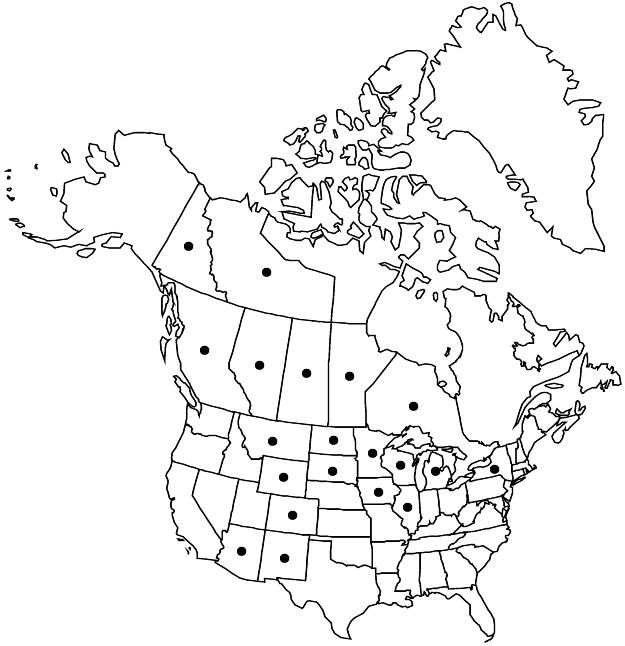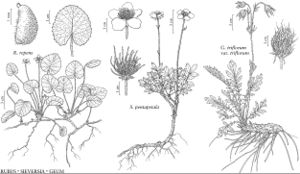Difference between revisions of "Geum triflorum var. triflorum"
Illustrated
Treatment appears in FNA Volume 9. Treatment on page 62.
imported>Volume Importer |
imported>Volume Importer |
||
| Line 45: | Line 45: | ||
|publication year= | |publication year= | ||
|special status=Illustrated | |special status=Illustrated | ||
| − | |source xml=https:// | + | |source xml=https://bitbucket.org/aafc-mbb/fna-data-curation/src/2e0870ddd59836b60bcf96646a41e87ea5a5943a/coarse_grained_fna_xml/V9/V9_86.xml |
|subfamily=Rosaceae subfam. Rosoideae | |subfamily=Rosaceae subfam. Rosoideae | ||
|tribe=Rosaceae tribe Colurieae | |tribe=Rosaceae tribe Colurieae | ||
Latest revision as of 22:59, 5 November 2020
Basal leaves: larger leaflets toothed or cleft less than 1/2 their lengths. Inflorescences (1–)3(–7)-flowered. Fruiting styles persistent, 28–70 mm, apex not hooked, pilose except for apical 3–5 mm. 2n = 42.
Phenology: Flowering spring–early summer.
Habitat: Prairies, grassy openings in dry forests, bluffs, open coniferous forests, thin soil over limestone
Elevation: 200–1800(–2900) m
Distribution

Alta., B.C., Man., N.W.T., Ont., Sask., Yukon, Ariz., Colo., Ill., Iowa, Mich., Minn., Mont., N.Mex., N.Y., N.Dak., S.Dak., Wis., Wyo., Mexico.
Discussion
Selected References
None.
Lower Taxa
None.
